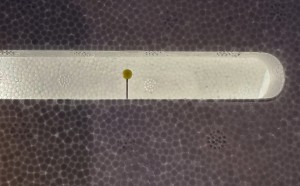Introducing: Short Supply
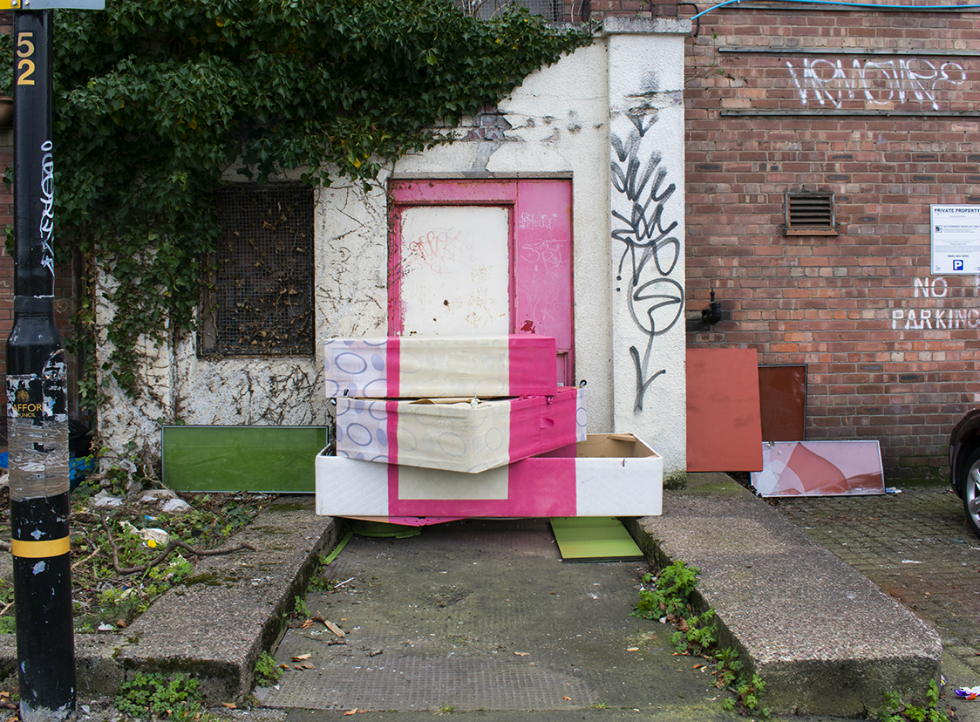
Angela Tait speaks to two graduates in Salford who – sick of waiting for opportunities to come to them – are launching their own exhibition, prizes and membership for artists…
As educators, we spend much of our time preparing our students for the precarious nature of the real world. What potential paths are open to the next graduating class? How can they navigate the arts straight from university – affordable studios, exhibitions and residencies – when life gets in the way? With the current state of the depleted job market, national funding cuts and general doom and gloom, it sometimes feels like you’re fighting a losing battle.
So, when I see graduates kickstart and grow their own ambitious projects, it’s a real boon. Take Short Supply: a new support system for emerging artists in the North West, set-up by my former University of Salford students Mollie Balshaw and Rebekah Beasley, with the goal of “putting on some damn good exhibitions”. It’s brilliant.
Graduating just last year from BA (Hons) Fine Art, they have, in a relatively short space of time, established Short Supply as a graduate showcase, prize and professional development experience all rolled into one. The first open-call group exhibition, MADE IT 2019, will launch this week at Paradise Works in Salford; it has been judged by established curators Bren O’Callaghan, Curator at HOME Manchester, and artist Precious Innes, co-curator of show.me.up. One artist will receive the Curator’s Choice award of £100 while another will be offered an exhibition in the Cass Art gallery in Manchester city centre.
It’s everything Mollie and Rebekah desired themselves, post-graduation. “We wanted to pre-empt the situations we were going to be experiencing after leaving uni”, Mollie tells me, as we meet in the Salford Museum and Gallery café – a stone’s throw from the art school where we used to sit down for tutorials together. I’m curious about the motivation behind Short Supply; juggling this alongside their own practice, volunteering at galleries and working part-time jobs to pay the bills. “We knew we would lose our systems of support, and we wanted to put what we’d learned into practice”, continues Mollie. “There are other artist-led initiatives in Manchester and beyond, but we felt we could offer something different. Instead of working with those, we decided to tackle what we’d been worried about ourselves.”
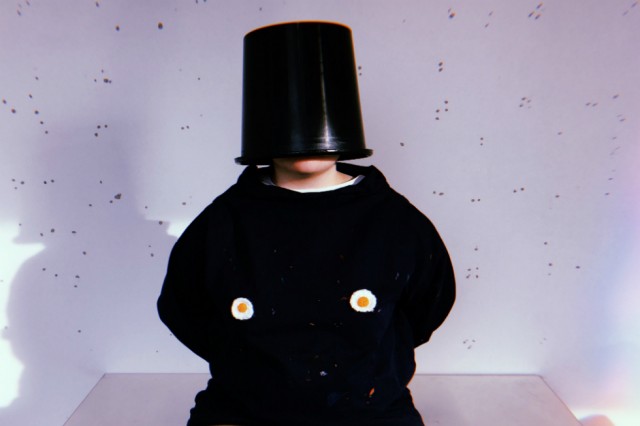

It’s true – the North West is brimming with a broad range of museums, galleries and studios, MA and PhD courses, public programming, collectives and groups, charities and funded projects – Arts Council England has even got an office in Manchester. But finding your way from a standing start can be a challenge fraught with unpaid opportunities, unsuccessful applications and false starts. There are specific platforms which support recent graduates; Mollie herself is a recipient of the Graduate Scholarship Programme 2019, a joint endeavour from the University of Salford Art Collection and the School of Arts & Media, which pays for 12 month’s-worth of studio space at Islington Mill and regular mentoring from a Manchester-based industry professional. Readers will be aware of high profile, national exhibitions like Bloomberg New Contemporaries: a fabulous springboard for the chosen few which tours British galleries and is, likewise, selected by industry experts.
In that context, I ask Mollie and Rebekah why Short Supply is needed at all? We discuss the application fee for Bloomberg New Contemporaries, which this year charges £25 for proposals to be considered amongst “huge numbers” of others, for one of 45 prestigious places. MADE IT, on the other hand, was free to apply to. It is also – crucially – run by new graduates, for new graduates.
“We’re in the same boat”, says Mollie. “We share some of the same experiences and anxieties. We’re expanding Short Supply into a larger support network which will go some way to replacing the critical environment of the university.” The Short Supply website will act as a membership-driven community, an online portal listing any emerging artist who wishes to be represented. Their first group crit is being planned, inviting all the applicants of the open call, Short Supply supporters and, apparently, even me. They would like ‘coffee, cake and crit’ to become a monthly occurrence, in some ways creating a supportive place which might replace the university studio environment they have lost.
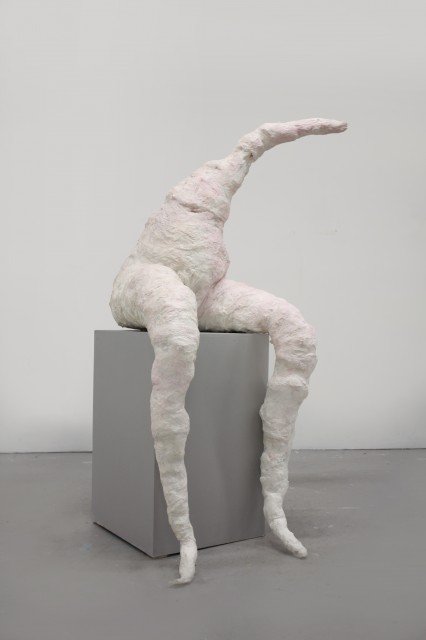
I’m pleased to hear it was an undergraduate exhibition that gave Mollie and Rebekah some of the impetus for MADE IT. Exhibiting in and co-curating their student show Reality: Tap to See More at Paradise Works – as part of a second-year module on professional practice – helped them to muster the confidence to start planning their own. They approached several Manchester galleries, before eventually getting the encouragement they needed from the Paradise Works co-founders, Hilary Jack and Lucy Harvey. Rebekah recalls the knock-backs they faced from venues because of their lack of reputation. “You can’t just say: ‘Here I am straight from university, trust me, I’m going to put on a show’.” And yet, that’s what they have done, in finding a venue that understood the need for an alternative graduate springboard drawing from the local talent pool.
And MADE IT is clearly and simply a good idea. Promoted through social media, purse-sized cards and posters in art shops and galleries, and on stickers on lampposts and bus stops, graduates from any North West university could apply to exhibit. “The flood of applications and interest truly took us by surprise”, says Rebekah. “Lots of people have reached out to us and said, ‘we like what you’re doing and we want to help or be involved’.”
Within a day of the campaign going live, Manchester-based independent publication Penny Thoughts had suggested a collaboration, along with Shy Bairns, a pop-up artist-run organisation also started by graduates looking to find their own path. HOME, Cass Art and Paradise Works are behind them. They now have an inaugural exhibition of 14 graduates, from Manchester School of Art, the University of Salford, UCLan, the University of Chester, University Centre St Helens and Bolton University. The pair plan to make this an annual event and have already committed to MADE IT 2020, whilst also securing a gallery for a separate curated show next July. The connections being made by Short Supply have expanded their own professional network, a notoriously difficult process for new graduates whose sphere of influence is usually limited to their own university cohort.
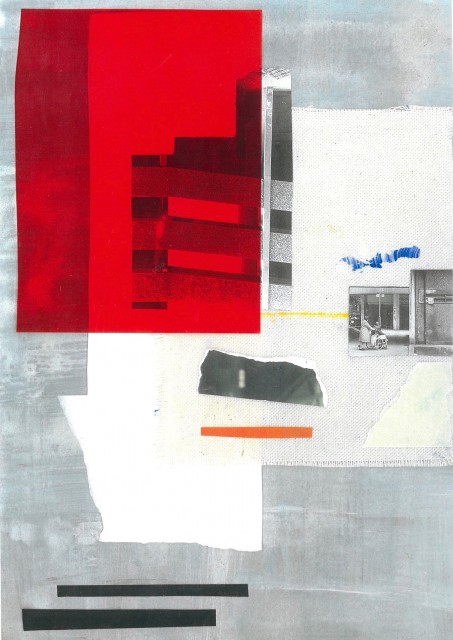
From their experience so far, I ask Mollie and Rebekah if they have any tips for other, fresh-out-of-uni artists responding to open-calls. Rebekah advises making every application outstanding: “Imagine Charles Saatchi might read what you’ve written and don’t send off anything you’re not completely proud of. Never send anything but your best proposal whether this is to a graduate show run by your contemporaries or an application to the Tate.”
“Don’t write too much” Mollie adds; “be clear and concise and always use great images which show scale.”
The duo understand that they’ve emerged into a crowded and complicated world. Short Supply is one way in which they’re attempting to shape their own destiny, whilst holding out a hand to other artists in the same situation. They’ve preempted a challenging time in their early careers with professionalism, thought and commitment. “Our art-life never stops”, laughs Rebekah… And I’d like to think they learned a little bit of that from me.
Angela Tait
Short Supply’s inaugural exhibition MADE IT 2019 opens at Paradise Works, Salford, on Thursday 15 August 2019, 6-8pm – FREE
Exhibition continues Saturdays 17 and 24 August 2019, 12-5pm, or by appointment until 30 August
Images, from top: Oliver East for MADE IT 2019, Short Supply, courtesy the artist. Mollie and Rebekah, founders of Short Supply. Megan Needham for MADE IT 2019, Short Supply, courtesy the artist. Emily Wills for MADE IT 2019, Short Supply, courtesy the artist



